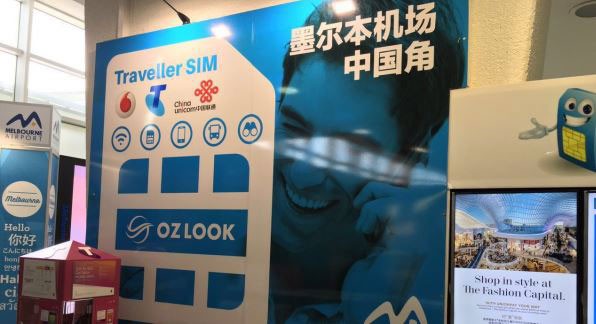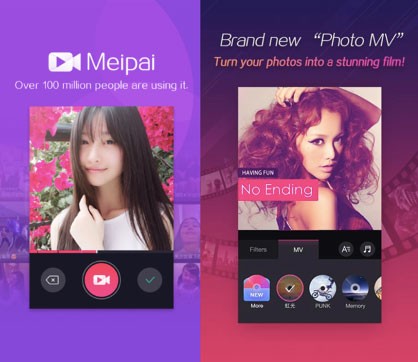Chinese hotels are increasingly sophisticated in their tourism promotion strategies. SIXT.VN understands that effective promotion involves a nuanced approach that considers cultural preferences and digital platforms. To connect with Chinese tourists visiting Vietnam, hotels need to be proactive and informed, using a combination of tailored services and digital marketing.
1. Understanding the Chinese Tourism Market
The Chinese outbound tourism market is vast and varied. To effectively promote tourism in hotels, it’s crucial to understand the nuances within this market. According to a report by the China Tourism Academy, outbound tourism from China reached 155 million trips in 2019, highlighting the sheer scale of the opportunity.
1.1. Segmenting the Market
Not all Chinese tourists are the same. Different segments have different preferences and travel styles:
- First-Time Travelers: Often interested in popular landmarks and shopping.
- Experienced Travelers: Seek unique, in-depth cultural experiences.
- Younger Travelers (Millennials and Gen Z): Value independent travel and authentic local interactions.
- Older Travelers: May prefer group tours and more structured itineraries.
 Chinese tourists visiting a temple
Chinese tourists visiting a temple
Chinese tourists often visit religious sites when traveling.
1.2. City Tiers
Travelers from different city tiers also have varying preferences:
- Tier 1 & 2 Cities (e.g., Beijing, Shanghai): More affluent, independent travelers who seek unique experiences.
- Tier 3 & 4 Cities: Often first-time travelers who prefer package tours and popular destinations.
1.3. Keeping Up with Trends
The Chinese tourism market is dynamic. It’s essential to stay updated on the latest trends and preferences. For instance, the rise of FIT (Fully Independent Travel) among younger Chinese tourists has changed how hotels need to market their services.
2. Offering Chinese-Friendly Services
Creating a welcoming environment for Chinese tourists is paramount. This involves providing services that cater specifically to their needs and preferences.
2.1. Language and Communication
- Chinese-Speaking Staff: Having staff who can communicate in Mandarin or Cantonese is invaluable.
- Chinese-Language Information: Providing brochures, menus, and signage in Chinese makes guests feel more comfortable.
2.2. Payment Options
- UnionPay Acceptance: UnionPay is the most widely used credit card in China. Accepting it is crucial.
- Mobile Payment Options: Integrating Alipay and WeChat Pay allows for seamless transactions.
2.3. Amenities
- In-Room Amenities: Providing items like slippers, tea kettles, and Chinese tea can enhance the guest experience.
- Breakfast Options: Offering Chinese breakfast items like congee, dumplings, and noodles is a thoughtful touch.
2.4. Cultural Sensitivity
- Respectful Interactions: Training staff to understand and respect Chinese customs and etiquette is essential.
- Avoiding Stereotypes: Recognizing the diversity within the Chinese market and avoiding generalizations is important.
2.5. China-Ready Programs
Consider official “China-ready” accreditations. These programs, like Chinese Friendly, certify hotels that meet specific standards for accommodating Chinese guests. Displaying such accreditation can boost credibility.
3. Providing Unique and Authentic Experiences
Chinese tourists, especially the younger, more experienced travelers, are looking for more than just the standard tourist attractions. They want authentic and unique experiences that allow them to connect with the local culture.
3.1. Tailored Experiences
- Cultural Tours: Offering tours that focus on local culture, history, and traditions can be very appealing.
- Culinary Experiences: Cooking classes, food tours, and special menus featuring local cuisine can attract food-loving tourists.
3.2. Off-the-Beaten-Path Destinations
- Exploring Local Neighborhoods: Encouraging guests to explore local markets, cafes, and hidden gems can provide a more authentic experience.
- Nature and Adventure Tourism: Promoting outdoor activities like hiking, cycling, and exploring natural landscapes can attract adventure-seeking travelers.
3.3. Personalized Services
- Customized Itineraries: Offering assistance in creating personalized itineraries based on individual interests and preferences.
- Concierge Services: Providing knowledgeable concierge services that can recommend local experiences and make reservations.
3.4. Engaging with Locals
Facilitating interactions with local people can greatly enhance the travel experience. This could involve arranging visits to local homes, workshops, or community events.
4. Strategic Partnerships
Collaborating with the right partners can significantly amplify your reach and effectiveness in the Chinese tourism market.
4.1. Travel Agencies and Tour Operators
- Traditional Partnerships: Partnering with travel agencies and tour operators that specialize in Chinese tourism is crucial.
- B2B Marketing: Engaging in B2B marketing to reach Chinese travel agents is a cost-effective strategy.
4.2. Airlines and Airports
- Connectivity: Ensuring convenient flight connections and competitive prices is essential.
- Airport Partnerships: Placing promotional materials and QR codes in airports can capture the attention of arriving travelers.
4.3. Government and Tourism Boards
- Visa Facilitation: Working with national tourism boards to streamline visa application processes can boost tourism numbers.
- Educational Initiatives: Collaborating to educate tourism operators about Chinese cultural differences and preferences.
4.4. Digital Partners
- Digital Marketing Agencies: Partnering with agencies that specialize in Chinese digital marketing can help you navigate the complex online landscape.
- Content Creators: Collaborating with content creators and influencers to produce engaging and shareable content.
4.5. Leveraging Local Communities
Don’t overlook the potential of local Chinese communities in countries with significant Chinese populations. These communities can serve as valuable ambassadors and sources of information for visiting friends and relatives (VFRs).
5. Building a Strong Online Presence
In today’s digital age, a strong online presence is essential for attracting Chinese tourists. With a large percentage of Chinese travelers researching destinations online, having a well-optimized website and social media presence is crucial.
5.1. Chinese-Language Website
- Hosting in China: Hosting your website in China can improve loading speed and accessibility.
- .cn Domain: Using a .cn domain can signal your commitment to the Chinese market.
- Mobile-Friendly Design: Ensuring your website is mobile-friendly is essential, as most Chinese users access the internet via their phones.
5.2. Search Engine Optimization (SEO)
- Baidu Optimization: Optimizing your website for Baidu, the dominant search engine in China, is crucial.
- Keyword Research: Conducting keyword research to identify the terms that Chinese tourists use when searching for information.
- Content Localization: Translating and adapting your content to suit the Chinese market.
5.3. WeChat Integration
- Official Account: Creating an official WeChat account is essential for engaging with Chinese tourists.
- Content Marketing: Sharing valuable content, promotions, and updates through your WeChat account.
- Customer Service: Providing customer service and support through WeChat.
- WeChat Mini-Programs: Developing mini-programs for services like booking, information, and loyalty programs.
5.4. Social Media Marketing
- Weibo: Using Weibo to reach a broader audience and engage with potential customers.
- Other Platforms: Exploring other platforms like Douyin (TikTok) and Xiaohongshu (Little Red Book) to reach specific demographics.
 A smartphone showing Chinese social media
A smartphone showing Chinese social media
Chinese social media platforms like WeChat and Weibo are essential for reaching Chinese tourists.
6. Mastering Social Media Marketing
Social media platforms in China are vastly different from those in the West. Understanding and utilizing these platforms effectively is crucial for reaching Chinese tourists.
6.1. WeChat Marketing
- Official Accounts: Setting up an official WeChat account is the foundation of your social media strategy. Use it to share valuable content, promotions, and updates.
- Content Strategy: Develop a content strategy that caters to the interests and preferences of Chinese tourists.
- Customer Engagement: Use WeChat to provide customer service, answer questions, and build relationships with your audience.
- WeChat Advertising: Explore advertising options on WeChat to reach a wider audience.
6.2. Weibo Marketing
- Brand Building: Use Weibo to build brand awareness and reputation.
- Influencer Marketing: Collaborate with Key Opinion Leaders (KOLs) to promote your hotel and destination.
- Content Promotion: Share engaging content and promotions on Weibo to drive traffic to your website and WeChat account.
6.3. Emerging Platforms
- Douyin (TikTok): Use Douyin to create short, engaging videos that showcase your hotel and destination.
- Xiaohongshu (Little Red Book): Leverage Xiaohongshu to target female travelers with lifestyle and travel content.
7. Utilizing Video Marketing
Video marketing has become increasingly popular in China, with a large percentage of internet users watching short video clips on a regular basis. Utilizing video can be a highly effective way to engage with Chinese tourists.
7.1. Short-Form Videos
- Platform Selection: Focus on platforms like Douyin (TikTok), Kuaishou, and Miaopai.
- Content Creation: Create short, engaging videos that showcase your hotel, destination, and unique experiences.
- User-Generated Content: Encourage guests to create and share their own videos.
7.2. Live Streaming
- Platform Selection: Consider platforms like Yizhibo and Huajiao.
- Interactive Content: Host live streaming events that showcase your hotel, destination, and unique experiences.
- Influencer Collaboration: Partner with KOLs to host live streaming events and reach a wider audience.
7.3. Professional Videos
- High-Quality Production: Invest in high-quality video production to create visually appealing and engaging content.
- Content Localization: Ensure your videos are localized for the Chinese market, with Chinese subtitles and voiceovers.
- Platform Optimization: Optimize your videos for the platforms you are using, with relevant keywords and descriptions.
 A video camera filming a scene
A video camera filming a scene
Video marketing, especially short-form videos, is highly effective in China.
8. Embracing Key Opinion Leaders (KOLs)
Key Opinion Leaders (KOLs), or influencers, play a significant role in shaping consumer behavior in China. Partnering with the right KOLs can greatly enhance your marketing efforts.
8.1. Identifying the Right KOLs
- Relevance: Choose KOLs who are relevant to your target audience and niche.
- Engagement: Look for KOLs with high engagement rates and a genuine following.
- Authenticity: Select KOLs who are authentic and trustworthy.
8.2. Collaboration Strategies
- Sponsored Content: Commission KOLs to create sponsored content that promotes your hotel and destination.
- Product Reviews: Send KOLs to your hotel for a stay and ask them to write a review.
- Live Streaming Events: Partner with KOLs to host live streaming events that showcase your hotel and destination.
- Social Media Campaigns: Collaborate with KOLs on social media campaigns to reach a wider audience.
8.3. Measuring Results
- Track Engagement: Monitor the engagement rates of your KOL campaigns.
- Website Traffic: Track the traffic generated by your KOL campaigns to your website and WeChat account.
- Conversions: Measure the conversions that result from your KOL campaigns.
9. Addressing Common Challenges
Promoting tourism in hotels to Chinese tourists comes with its own set of challenges. Understanding these challenges and developing strategies to address them is essential for success.
9.1. Cultural Differences
- Language Barrier: The language barrier can be a significant challenge. Providing Chinese-speaking staff and translated materials can help bridge this gap.
- Cultural Norms: Understanding and respecting Chinese cultural norms is crucial for creating a welcoming environment.
9.2. Digital Landscape
- Platform Fragmentation: The Chinese digital landscape is highly fragmented, with a multitude of platforms and apps. Focusing on the most relevant platforms for your target audience can help you avoid spreading yourself too thin.
- Regulatory Environment: The regulatory environment in China can be complex and ever-changing. Staying up-to-date on the latest regulations and ensuring compliance is essential.
9.3. Competition
- Intense Competition: The Chinese tourism market is highly competitive. Differentiating your hotel and offering unique experiences can help you stand out from the crowd.
- Price Sensitivity: Chinese tourists can be price-sensitive. Offering competitive pricing and value-added packages can attract budget-conscious travelers.
9.4. Maintaining Quality
- Consistency: Maintaining consistent quality in your services and offerings is essential for building trust and loyalty.
- Feedback Collection: Soliciting feedback from Chinese guests and using it to improve your services is crucial.
- Staff Training: Investing in staff training to ensure they are equipped to meet the needs of Chinese guests.
10. Case Studies of Successful Hotel Tourism Promotion in Vietnam
Examining case studies of hotels in Vietnam that have successfully promoted tourism to Chinese tourists can provide valuable insights and inspiration.
10.1. The Peninsula Hanoi
- Strategy: The Peninsula Hanoi has implemented a comprehensive strategy that includes Chinese-speaking staff, Chinese-language materials, UnionPay acceptance, and tailored experiences for Chinese guests.
- Results: The hotel has seen a significant increase in bookings from Chinese tourists and has received positive reviews from Chinese guests.
10.2. Sofitel Legend Metropole Hanoi
- Strategy: The Sofitel Legend Metropole Hanoi has partnered with Chinese travel agencies and KOLs to promote its hotel and destination.
- Results: The hotel has increased its brand awareness among Chinese tourists and has seen a rise in bookings from this market.
10.3. InterContinental Danang Sun Peninsula Resort
- Strategy: The InterContinental Danang Sun Peninsula Resort has created a WeChat account to engage with Chinese tourists and share valuable content.
- Results: The hotel has built a strong following on WeChat and has seen a significant increase in traffic to its website from Chinese tourists.
FAQ: How Chinese Hotels Promote Tourism
-
Q: Why is it important for hotels to target Chinese tourists?
- A: The Chinese outbound tourism market is the largest in the world, making it a significant opportunity for hotels to increase revenue and occupancy rates.
-
Q: What are some key services that hotels should offer to Chinese tourists?
- A: Essential services include Chinese-speaking staff, Chinese-language materials, UnionPay acceptance, Alipay/WeChat Pay, and amenities like slippers and tea kettles.
-
Q: How can hotels create unique experiences for Chinese tourists?
- A: Hotels can offer cultural tours, cooking classes, personalized itineraries, and concierge services that cater to the interests and preferences of Chinese guests.
-
Q: What are some effective partnership strategies for hotels targeting Chinese tourists?
- A: Partnering with travel agencies, tour operators, airlines, airports, government tourism boards, and digital marketing agencies can significantly amplify your reach.
-
Q: Why is it important for hotels to have a Chinese-language website?
- A: A Chinese-language website, hosted in China, improves accessibility, loading speed, and SEO performance on Baidu, the dominant search engine in China.
-
Q: How can hotels leverage social media to reach Chinese tourists?
- A: Hotels should establish a presence on WeChat and Weibo, share engaging content, and collaborate with KOLs to promote their hotel and destination.
-
Q: What are some common challenges that hotels face when targeting Chinese tourists?
- A: Common challenges include cultural differences, the complex Chinese digital landscape, intense competition, and the need to maintain consistent quality.
-
Q: How can hotels measure the success of their marketing efforts targeting Chinese tourists?
- A: Hotels can track engagement rates, website traffic, conversions, and customer feedback to measure the effectiveness of their marketing campaigns.
-
Q: What role do Key Opinion Leaders (KOLs) play in promoting hotels to Chinese tourists?
- A: KOLs have a significant influence on consumer behavior in China. Partnering with the right KOLs can greatly enhance brand awareness and drive bookings.
-
Q: How can SIXT.VN assist hotels in attracting Chinese tourists?
- A: SIXT.VN offers a range of services, including translation, digital marketing, and partnership development, to help hotels effectively target the Chinese tourism market. Contact us at +84 986 244 358 or visit SIXT.VN for more information. Address: 260 Cau Giay, Hanoi, Vietnam.
By understanding the Chinese tourism market and implementing the strategies outlined in this article, hotels can effectively promote tourism and attract a growing number of Chinese tourists. SIXT.VN is here to assist you every step of the way, providing expert guidance and tailored solutions to help you succeed in this dynamic market.
Are you ready to welcome more Chinese tourists to your hotel? Contact SIXT.VN today to learn more about our comprehensive suite of services designed to help you thrive in the Chinese tourism market. From crafting culturally relevant marketing campaigns to providing seamless travel solutions, we’re your dedicated partner in success. Call us at +84 986 244 358 or visit SIXT.VN to discover how we can elevate your hotel’s appeal to Chinese travelers. Don’t just wait for guests to arrive – create an unforgettable experience that keeps them coming back. Address: 260 Cau Giay, Hanoi, Vietnam. Start your journey to success with SIXT.VN!
Looking for seamless airport transfers for your guests? Check out SIXT.VN’s Hanoi airport transfer services.



